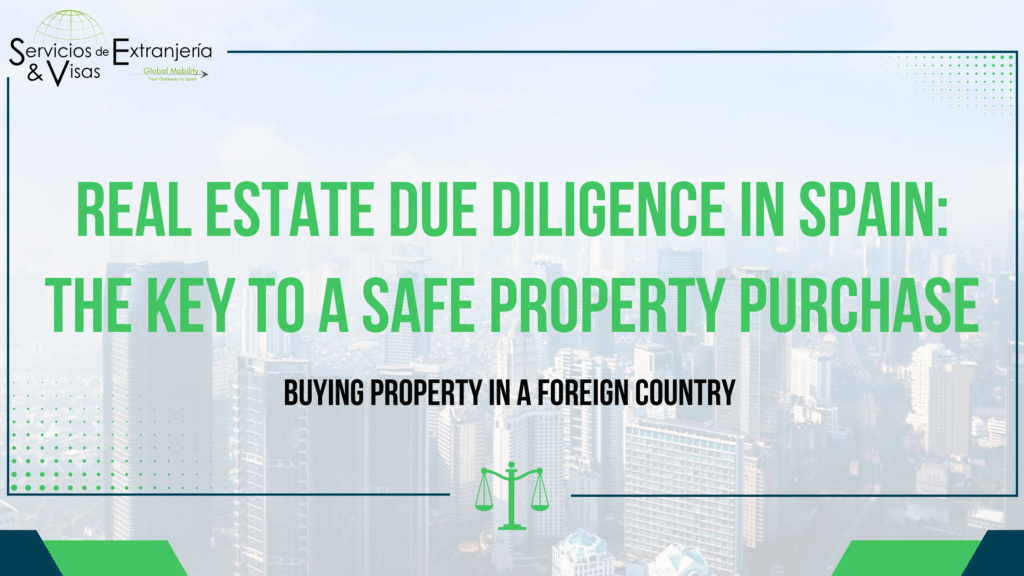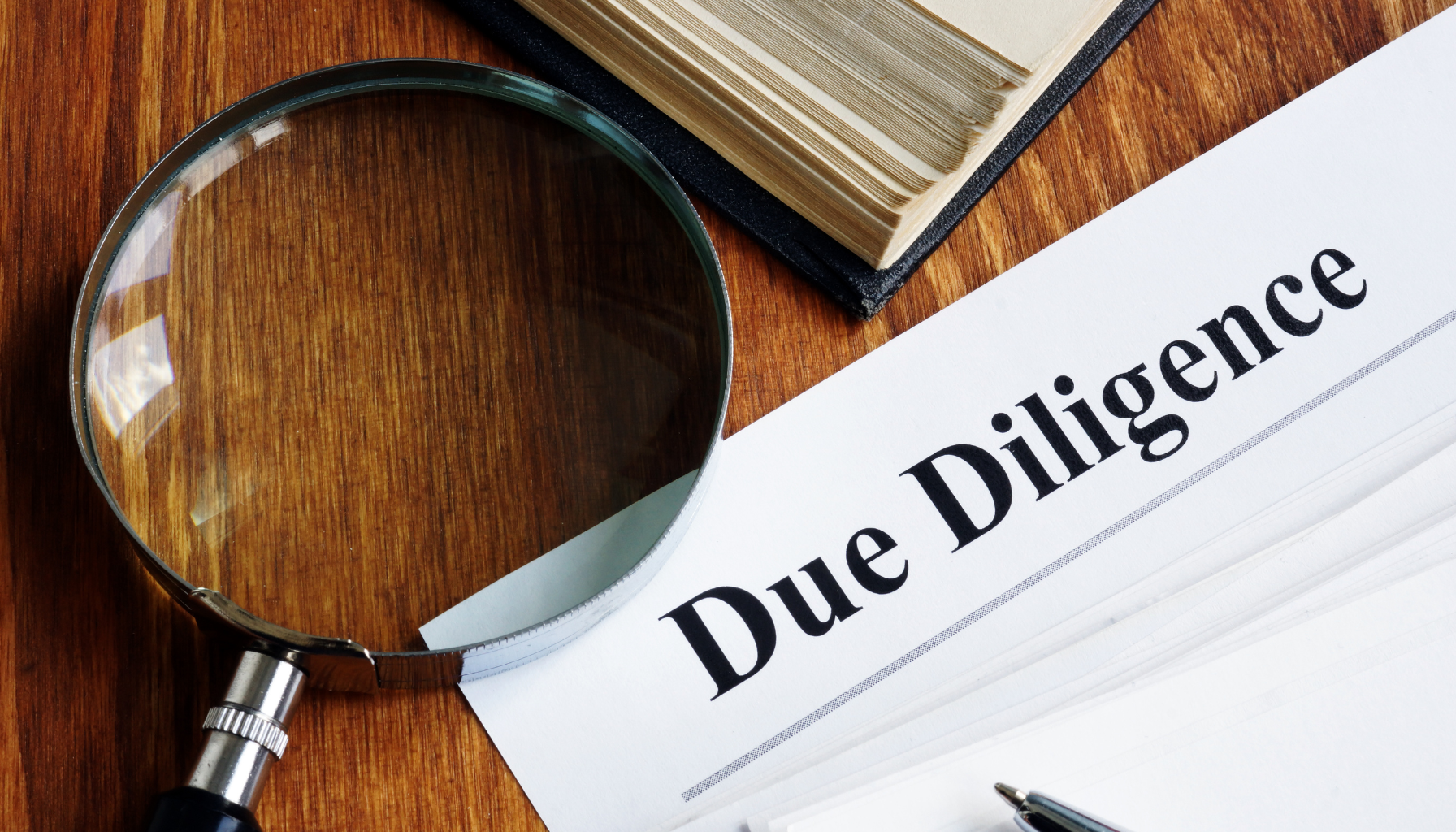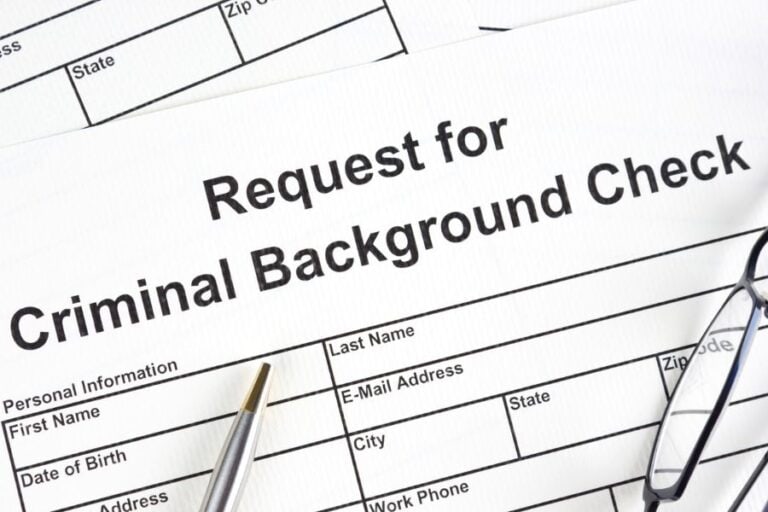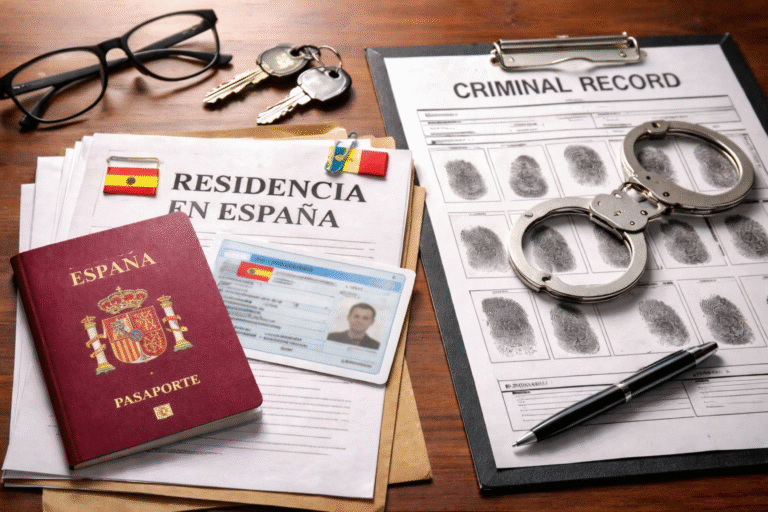Real Estate Due Diligence in Spain: The Key to a Safe Property Purchase

Buying property in a foreign country can be a complex process; that is why, in this article, we will explain what due diligence means in the Spanish real estate sector, why it is essential to carry it out before purchasing, and how it can help you avoid future problems. Our aim is to provide you with useful information so that your investment in Spain is safe and transparent, ensuring that buying property in Spain becomes a successful experience without unpleasant surprises.
1) What is real estate due diligence and why is it important?
Real estate due diligence is a thorough process of investigation and analysis carried out before purchasing a property, aimed at collecting detailed information on its legal, planning, technical, financial and tax situation. In other words, it is a comprehensive “audit” of the property that enables the identification of potential risks or opportunities related to the transaction before committing to the purchase. Thanks to this review, the buyer can make a fully informed decision on whether to proceed with the purchase.
The importance of conducting due diligence lies in the security and confidence it brings to the buying process. By having in-depth knowledge of the property’s condition, unforeseen issues such as hidden debts, legal irregularities or serious construction defects can be avoided. In fact, due diligence adds transparency to the relationship between buyer and seller, fostering mutual trust throughout the transaction.
2) What services are included in real estate due diligence?
A real estate due diligence involves a wide range of verification services across different areas. The most relevant aspects of the procedure include:
- Legal review of the property: Verifies the true ownership of the property and whether the seller has the right to sell it. It also checks at the Land Registry that the property is free of charges (such as mortgages, embargoes or other encumbrances) or legal issues that may affect its value. This ensures that you are buying from the actual owner and that you will not inherit someone else’s debts.
- Planning status and licences: Confirms that the property complies with current planning regulations by reviewing building permits, municipal licences, the occupancy certificate and the energy performance certificate. The goal is to ensure there are no planning infringements or unauthorised constructions (e.g., illegal extensions) that could lead to fines or usage restrictions.
- Technical inspection of the property: A qualified technician conducts a detailed physical inspection of the property to assess its structural condition, including the structure itself, electrical and plumbing installations, roof condition, insulation, etc. This review detects potential hidden defects or structural faults that are not visible to the naked eye. This way, you will know in advance if major renovations are needed or if the property presents construction-related issues.
- Debt and tax checks: Confirms that the property is up to date with all financial and tax obligations. This includes ensuring there are no outstanding debts with the owners’ association (community fees), verifying that the seller has paid the IBI (Property Tax) and other municipal charges, and confirming that no overdue taxes are associated with the property. It also involves reviewing the existence of any registered encumbrances such as unpaid mortgages or liens, all of which must be resolved by the seller prior to purchase.
- Final report and legal advice: Once all information has been gathered and analysed, a detailed due diligence report is drawn up with all findings. Additionally, it is common for legal professionals to advise the buyer during price negotiations (for instance, if deficiencies are found, a discount may be requested) and to accompany them during the legal closing of the deal before a notary. In essence, full legal support is provided throughout the entire conveyancing process to ensure that everything is properly documented and protected.
Carrying out all these checks can be complex, which is why it is highly recommended to seek assistance from local experts. At Servicios de Extranjería, we offer a comprehensive real estate due diligence service specially designed for foreign buyers. Our team of professionals is responsible for verifying every legal, technical and fiscal detail of the property and advising you throughout the entire process, ensuring that your property acquisition in Spain is carried out with full guarantees.
3) Common problems when buying property: how does due diligence solve them?
Imagine the typical problems that might arise when buying a home in Spain without the proper precautions: you might discover after signing that the property had a hidden mortgage, a pending embargo, extensions built without a licence, or serious structural issues that were not visible during the visit. Unfortunately, such cases do happen and can result in unexpected expenses, fines, or even prevent you from fully enjoying your new home. Likewise, skipping the technical inspection may mean overlooking serious construction problems, which later result in unexpected repair costs and possible legal complications. In short, failing to conduct due diligence means exposing yourself to major risks that could have been avoided.
The good news is that due diligence resolves these problems before they happen. Through this process, all those potential risks are identified before the purchase is signed. For instance, an up-to-date “nota simple” from the Land Registry is requested to reveal immediately whether there are any mortgages, embargoes or other hidden charges on the property, thus avoiding unpleasant surprises after the sale. If the report shows a charge, you may require the seller to cancel it or even renegotiate the agreed price. Likewise, the planning review will confirm that the house has all documentation in order (no violations or illegal works), so you will not face fines or expensive legalisations later. The technical inspection, on the other hand, will alert you to any hidden faults or significant structural defects; this allows you to request that the seller carry out repairs, negotiate a price reduction, or, in the worst-case scenario, withdraw from the purchase before committing to a problematic property.
In short, carrying out due diligence allows you to buy the property with peace of mind, knowing its full condition and ensuring no unpleasant surprises will appear later. This level of precaution provides the security that your investment is viable and protected, making all the difference between a successful purchase and future complications.
4) What are the tax obligations when purchasing a property?
In addition to the above, purchasing a property in Spain entails several tax obligations that must be properly understood and managed. Real estate due diligence should include a fiscal analysis to foresee all associated tax expenses and avoid financial surprises or potential penalties.
- Transfer Tax or VAT: The buyer must pay the Property Transfer Tax (ITP) if the property is second-hand (between 6% and 10% depending on the autonomous community), or VAT (10%) if it is new, along with the Stamp Duty (AJD) (0.5%–1.5%).
- IBI and Municipal Capital Gains Tax: IBI is an annual tax normally shared between buyer and seller based on the transaction date. The Municipal Capital Gains Tax, which taxes the increase in land value, is legally payable by the seller, although alternative agreements may be reached.
- Declared value and administrative verification: The declared purchase price must reflect the real market value of the property. If an undervalued amount is declared, the Tax Authority may reassess the value and demand additional taxes, with surcharges and interest.
- NIE and bank account: Every foreign buyer needs an NIE and a Spanish bank account in order to complete the purchase and pay the related taxes and costs.
- Submission of tax forms: It is mandatory to submit the relevant tax forms (such as Form 600 for ITP) within the legal deadline, usually 30 working days after signing. Only after the taxes have been paid can the property be registered in the Land Registry.
- Ongoing taxation for non-residents: If the buyer is not a Spanish resident, they must declare the ownership of the property through the Non-Resident Income Tax (Form 210), whether or not the property is rented out, in compliance with current tax legislation.
In conclusion…
Real estate due diligence is the key to a safe and transparent property purchase in Spain. It is an essential step for any buyer, especially if you are a foreigner unfamiliar with local regulations. A thorough investigation of the property before buying helps identify risks, ensures the feasibility of the investment, and avoids costly setbacks.
Finally, if you are planning to purchase a property in Spain, we invite you to take the next step with our support. At Servicios de Extranjería, we have an expert team specialised in property and legal procedures for foreign nationals. We will assist you at every stage of the process, from obtaining your NIE and preparing documentation to carrying out a complete legal and technical due diligence on the property you wish to buy. Contact us and discover how we can help you turn your dream of owning property in Spain into a reality.







